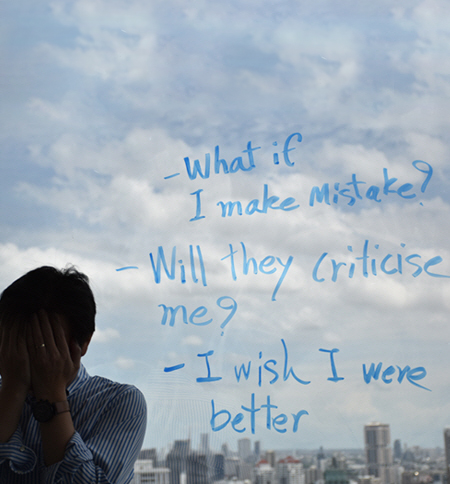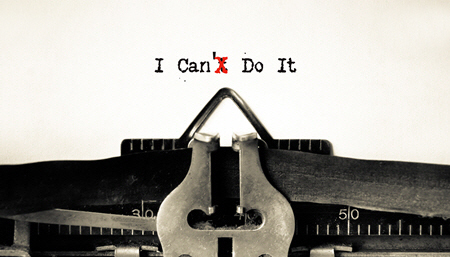 Low self-esteem pops up with amazing frequency
Low self-esteem pops up with amazing frequency
One of the puzzling mysteries of the world is the undervalued self (e.g., low self-esteem). Even those who appear to others to “have it all” can struggle daily with the frustration and damage caused by low self-esteem.
It is certainly no respecter of persons and is a common battle for people regardless of how they look, where they were born, how much money they make, how many opportunities they had (or did not have), and what kinds of parents they inherited at the gene pool lottery.
There are also several theories in the world of psychiatry/psychology/
sociology about what causes it to develop and how to make it better. It is the common cold in the universe of mental/emotional health.
What I can tell you for sure is that it will show up in therapy sessions – even if that was not your main reason for starting the therapeutic journey.
Let me introduce you to Laura*.
Laura was a patient of mine a couple of years ago. She came in to see me because she was finishing up medical residency, had two small children, and was going through a tough divorce.
Our focus was on helping her navigate all of these transitions, and she wanted to handle the divorce with grace and courage.
Laura was very smart, had a great bedside manner, was well-liked by her colleagues, and did well during her training. She decided to pursue a fellowship to enhance her skills and was actively pursued by employers because of her specific specialty.
 Beware of the evil twins.
Beware of the evil twins.
The evil twin of low self-esteem is Impostor Syndrome. And it has a couple of crazy cousins called Perfectionism and Procrastination. They like to party together and create tons of mischief in our lives.
Impostor Syndrome caused Laura to freeze. She feared she was not competent in her specialty and was worried she would not provide good care to her patients. She hated going to work each day and felt trapped with no way out.
One option she considered was leaving medicine altogether. I repeatedly pointed out to her a stellar track record and exceptional training. Her response always included a version of: “I am not that good – I just have fooled them. Eventually, they will figure it out, and I will be exposed as a fraud.”
These beliefs were irrational but incredibly powerful. A history of procrastination and perfectionism resulted in Laura experiencing herself as always “missing the mark” of perfection. Surely, I could see she was not good enough…
Our work together focused on the following:
- “What core beliefs do I hold about myself?”
- “Do I believe I am worthy of love as I am?”
- “Must I be perfect for others to approve of me?”
- “What did I learn in my family of origin about how I am valued?”
 Answers to these questions are complicated.
Answers to these questions are complicated.
The other evil twin called low self-esteem wears a lot of masks and can be defended quite strongly by emotional armor or shields.
The six-figure income, the job with lots of titles, the degrees that took you years to earn, that perfect-looking family, the business you built from the ground up, and those bulging biceps and toned triceps contribute to the narrative that you have it all together.
Sometimes in therapy, it takes a while for you to have a deep sense of safety that allows you to take off the armor and step into vulnerability. What if the armor no longer works so well?
What if you are tired of being that double agent who portrays one “story” of having it all figured out, while the internal “story” is marked by shadows, shame, and a pattern of undervaluing yourself throughout life.
How do you arrive at believing that indeed – YOU are Enough?
 Being vulnerable starts the process.
Being vulnerable starts the process.
You must first understand that this is a life-long process. Therapy will offer you the breakthrough where you are introduced to new ways of understanding yourself, viewing your past, and creating your future.
My promise is that you can leave therapy with a new set of tools that will help you starve shame over time and equip you with weapons to help you combat the inner critic.
Your best weapon is your vulnerability and willingness to be human within the presence of another human. Here is a quick roadmap for the journey…
Your brains harbor memories, some good and some bad.
Exploring attachment to your earliest caregivers will help us understand where the interpersonal wounds are hidden, but also how they may have affected your brain development.
“We shape our self to fit this world and by the world are shaped again.”
– David Whyte
Your early experiences can alter how your brain reacts to perceived danger, your willingness to move toward or away from others, and how you process emotions.
 But your brain is flexible enough to change.
But your brain is flexible enough to change.
Fortunately, we now understand that our brains are capable of “neuroplasticity.”
We can generate new synaptic links and create new neural pathways. The quality of the connection can accomplish some of what we enjoy with others. Altering the content of what we say to ourselves regularly can help. Your inner critic will start to get challenged and pushed aside to make room for the positive feedback you are experiencing.
Experiencing a healthy, safe connection where positive feelings and affirmations are mirrored back to us from another human can be incredibly healing.
Tools are required for overcoming low self-esteem.
TOOL #1
We will take time to be intentional about naming what you are feeling and needing. Sounds basic, right? However, most of us in the hustle-and-bustle of living often struggle to name the emotion coursing through us.
This results in a lifetime of feeling disconnected from yourself. The world of emotion forms shame. If we only approach self-esteem as a problem to be conquered by changing our thoughts, we will limit our effectiveness. Our feelings and needs must be welcomed as an incredibly rich source of data about who we are.
It’s about what’s inside and outside.
TOOL #2
Therapy will teach you specific tools to help you be more aware of the attention that you give to both the external world and the world inside yourself.
This “mindfulness” includes paying attention to the impulse to hide from your feelings and needs. You will also learn to be more aware of your negative thoughts and find opportunities to challenge those ingrained beliefs. The next step is to choose what you will focus on that is positive, life-giving, and brings joy.
Ultimately, we become that to which we pay attention.
 Practice compassion for yourself.
Practice compassion for yourself.
TOOL #3
Self-compassion is a practice of kindness and generosity toward yourself, not just fluffy affirmations and nice words. Self-compassion is based on confronting our pain, the imperfect world we live in, and the truth that we are also imperfect.
Then we meet at our greatest need and provide support and comfort – just as we would give to a dear friend. You deserve the same compassion you would offer to others.
Developing this tool takes practice and intentionality. Very often the therapeutic relationship becomes a “role model” or example for how to add this to your day-to-day life.
It’s about owning your story.
“You either walk inside your story and own it
or you stand outside your story and hustle for your worthiness.”
– Brené Brown
 TOOL #4
TOOL #4
Much of the battle with Impostor Syndrome will involve addressing the scripts or stories you tell yourself about competence, fear, and failure/mistakes/criticism.
People who think as “non-impostors” don’t get lost in a shame swamp when they fail or make a mistake. They can make a realistic assessment of their competence and track record. They acknowledge their strengths and weaknesses without getting overly focused and stuck on their weaknesses.
 Let’s work together on your undervalued self.
Let’s work together on your undervalued self.
Every day, I help people identify the thoughts and feelings that keep them trapped in shame and low self-esteem. Together, we can untangle distorted beliefs about perfectionism and fear of failure that perpetuate the chronic tendency to undervalue our essential worth. Together, we can explore the freedom of thinking like a “non-impostor” and relax into the peace of being enough.
Contact me now, so we can take the deep dive to discover that YOU ARE ENOUGH!
It is time to change your story.
*Name changed to protect client confidentiality.


